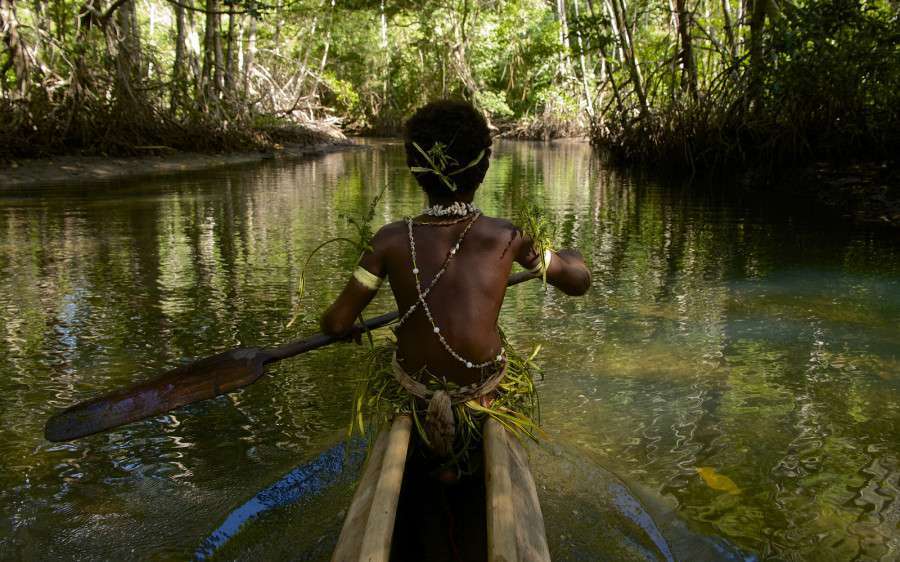
Following the landmark COP21 in December 2015, during which 196 parties adopted the Paris Agreement, the Conference attendees agreed to provide substantial financing and support through international donors and funds to address climate change. As part of this movement, USAID launched the USAID Climate Ready Project, implemented by DT Global, which supports Pacific Island Countries as they adapt to climate change.
The ultimate outcome of USAID Climate Ready is tangible progress toward the implementation of an increased number of adaptation interventions that are aligned with Pacific Island Countries’ National Adaptation Plans so countries become more resilient to climate change and disaster risks.
As the project draws to a close, we’re sharing lessons learned from seven years of implementation. In this blog, we discuss what we learned in supporting Pacific Island Countries to mainstream and operationalize polices that incorporate climate change.
One of USAID Climate Ready’s primary tasks was to ensure that the policies, plans, strategies, and other institutional arrangements needed to achieve the adaptation goals identified by Pacific Island Countries were in place and in practice. To do this, the Project worked with Pacific Island Countries to develop 19 policies, plans, and strategies and ensured that they were finalized documents and were acknowledged, approved, or endorsed by the relevant government bodies.
But when USAID Climate Ready started to evaluate how these policies were being implemented, it found that in most cases there was little progress to incorporate, mainstream or even use the policies to incorporate climate change considerations into day-to-day operations.
To facilitate implementation, the Project used an adaptative management approach to provide targeted assistance to strengthen Pacific Island Countries’ capacities to implement and overcome implementation barriers that had manifested themselves, particularly in the area of mainstreaming. USAID Climate Ready was particularly attuned to a “Pacific First” model for adaptive management that prioritized localization and put Pacific leadership in the driver’s seat.
Use a lifecycle approach: When investing resources in policy development, we found that it is essential to adopt a lifecycle approach and to provide program support along the whole policy cycle (formulation, implementation and monitoring, evaluation, and learning). This is especially the case in areas of policy innovation such as climate change.
Senior managers need to drive change: Effective operationalization of a policy/plan needs to be supported and driven by senior managers. These senior managers understand the need for the policy/plan and see that operationalization is essential for improving the organization and its outcomes. They then promote the policy and ensure that it is mainstreamed throughout the organization and embedded into procedures, practices and thinking.
Pacific organizations must lead: In the Pacific, Council of Regional Organisations in the Pacific and Pacific Island Countries seek to drive their own change and improvement. If you have proven that you are a reliable, trusted, and effective partner, you may get invited to support the entity. The time taken for trusted relationships to form can impinge directly on donor timelines and expectations. It is important for donors to be patient and respectful of how things are done in the Pacific, and to allow the Council of Regional Organisations in the Pacific and Pacific Island Countries to lead, which is key to any localization strategy.
Expect a long timeframe: In the Pacific, there are usually a limited number of staff in each department who are busy and pulled in multiple directions, so a reasonable timeframe is required in order to get things done. Both donors and organizations need to accept and appreciate that the process will take longer than expected and allowances will need to be made for this.

For instance, in Fiji, USAID Climate Ready worked with the Fiji Development Bank using a lifecycle approach for its Green Climate Fund accreditation, providing support for the gender policy and procurement aspects of accreditation, and later—at the request of the Bank—helping to operationalize the gender policy and action plan. Our Fiji-based consultant supported this work from start to finish—collaborating closely with the Fiji Development Bank to develop and operationalize the policy. Being Fiji-based, she could meet in-person at regular intervals that best suited the Bank and provide regular support over an extended period of time.
In Tonga, the Project prioritized Pacific leadership and a lifecycle approach. We supported the Ministry of Energy, Information, Disaster Management, Environment, Climate Change and Communication (MEIDECC) to finalize the Joint National Action Plan on Climate Change and Disaster Risk Reduction 2018-2028 (JNAP 2) using a local technical consultant. After, at the request of MEIDECC, USAID Climate Ready provided technical support in the form of three local staff to reconstitute the JNAP Secretariat, charged with implementing this plan. Our support through these technical staff continued for three years and enabled them and MEIDECC to implement JNAP 2 activities. When USAID Climate Ready support ended, the JNAP 2 staff were employed by MEIDECC and through this arrangement are continuing JNAP 2 implementation, supporting long term sustainability.
By acting as a trusted partner to Pacific Island Countries, USAID Climate Ready was able to support real change toward mainstreaming climate considerations. Our thoughtful use of adaptive management principles helped to create lasting change in day-to-day government operations throughout our partner countries.